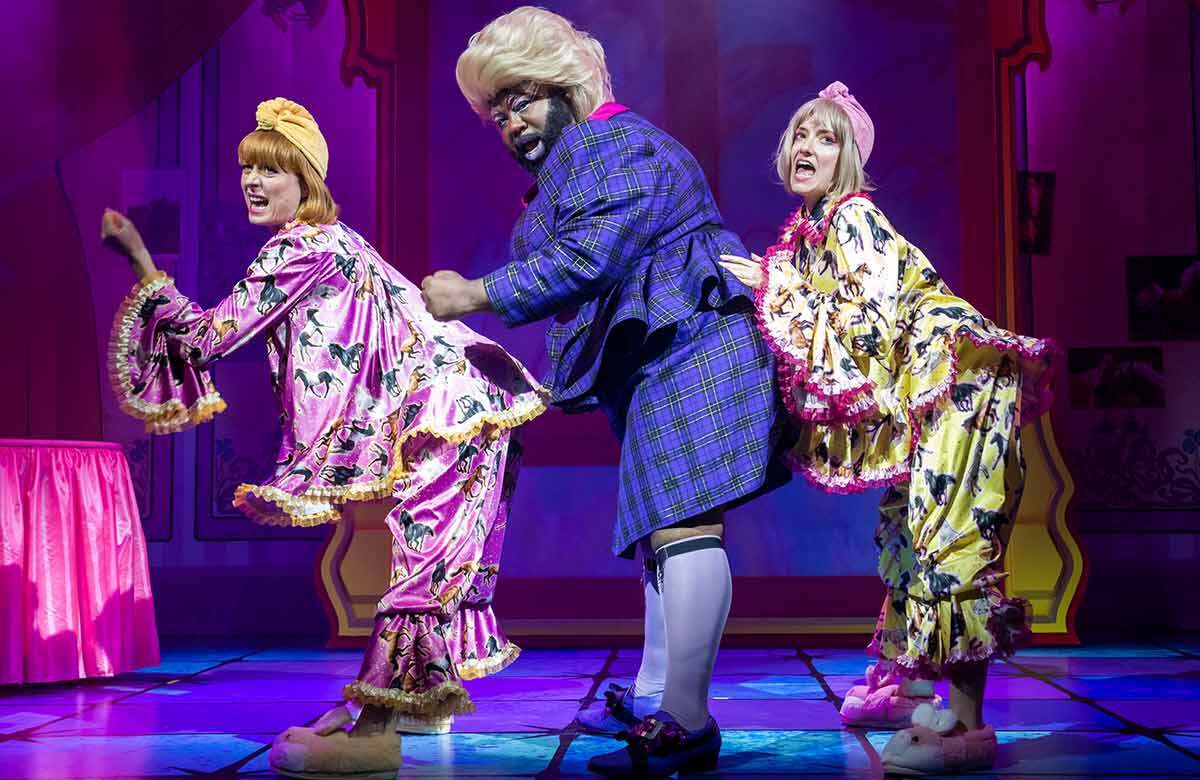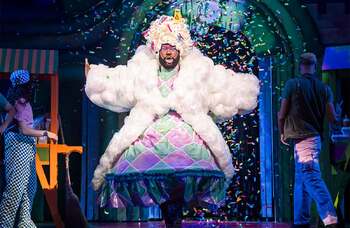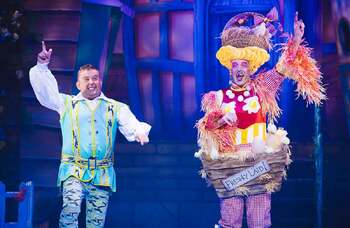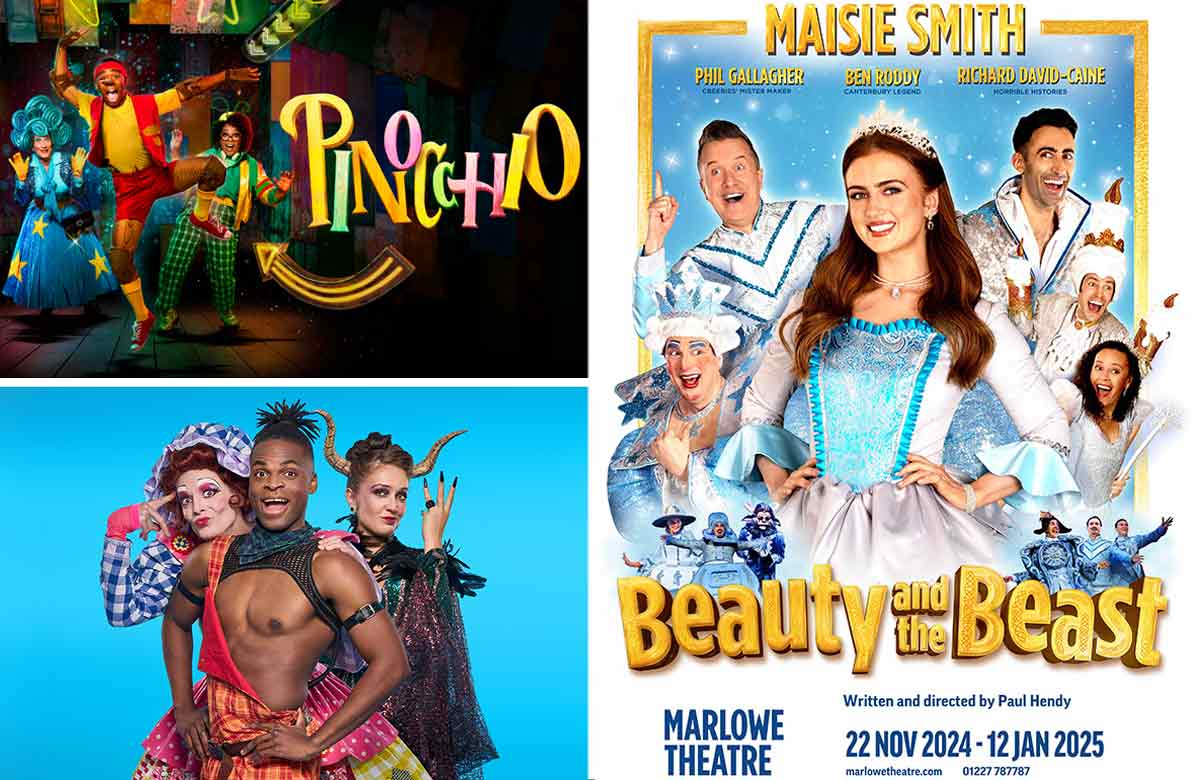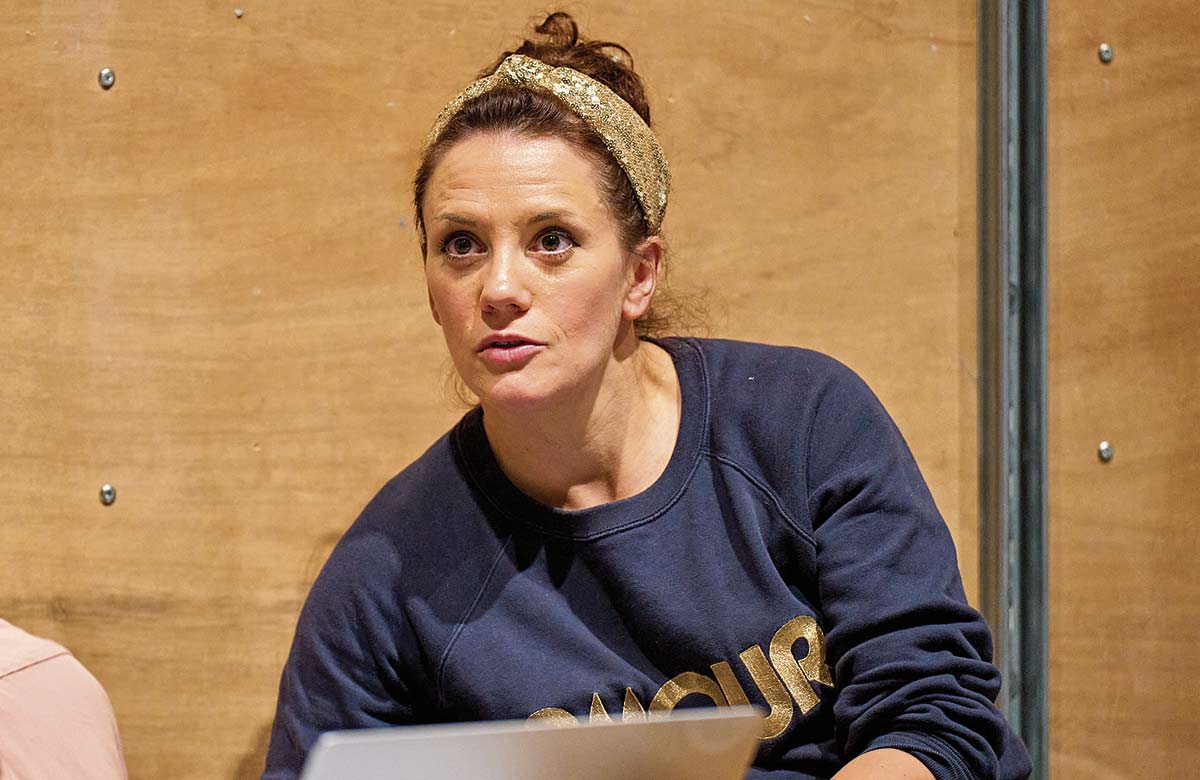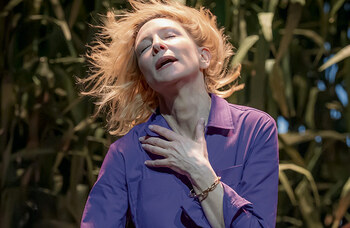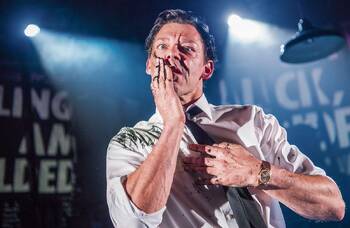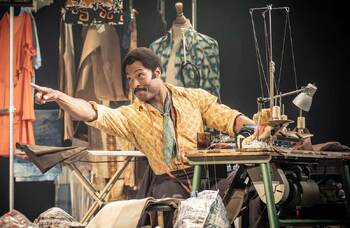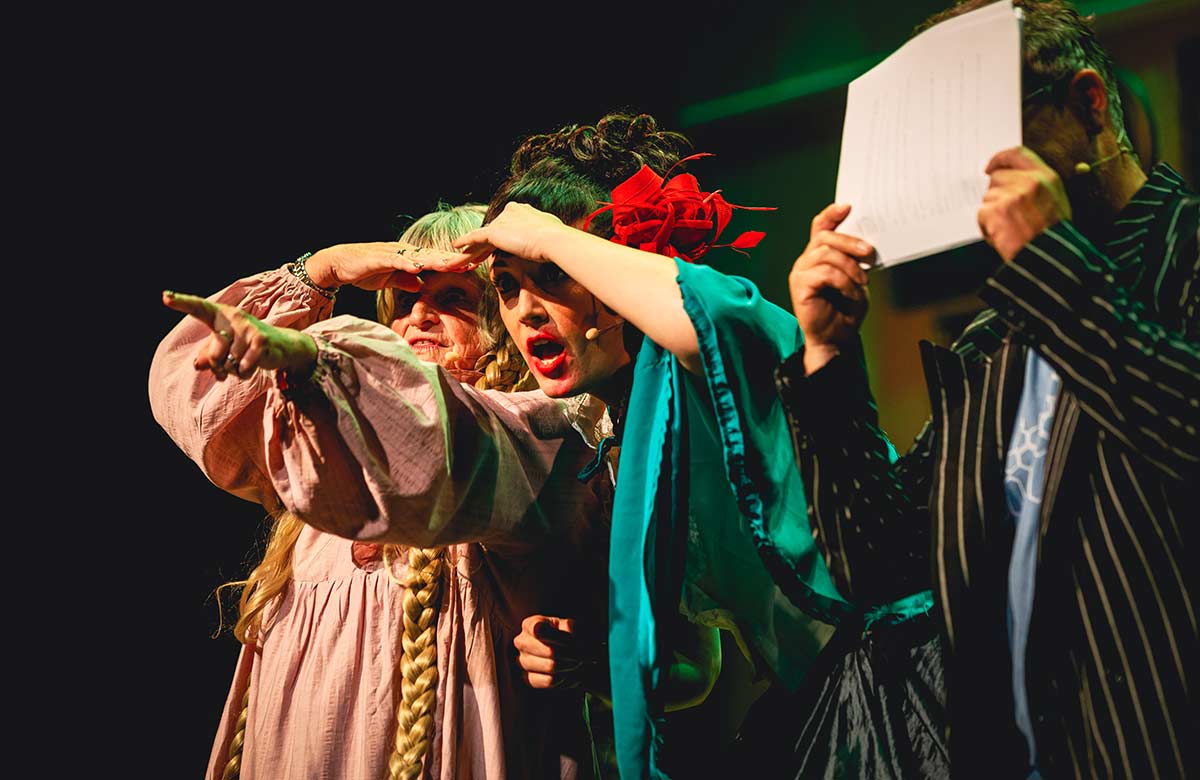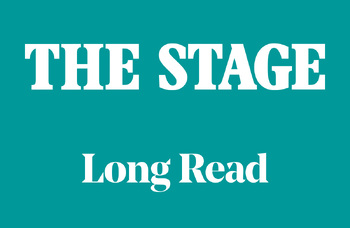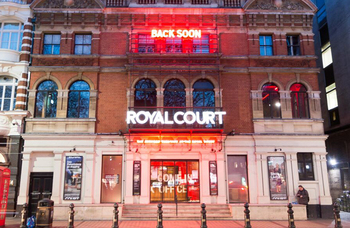‘Cut the story down to its bare bones, then pump it full of jokes’: how to write a hit pantomime
 Holly Williams
Holly WilliamsHolly Williams is a freelance journalist and theatre critic. Her novels The Start of Something and What Time is Love? are published by O ...full bio
What’s the secret to a good pantomime script? From eliciting boos and hisses from audiences of all ages, to making sure there are enough local jokes and updating old stories for today, Holly Williams hears from playwrights tackling their first pantos and veterans who pen several every year about how they keep the tradition alive
Sonia Jalaly
The writer has put together her first solo-authored pantomime this year – Aladdin at the Lyric Hammersmith in London
I went to see Aladdin at Blackpool when I was three, and I was so scared of Abanazar I was clutching my friend’s mum’s arm till I broke the skin… but I also loved it so much that there are home videos of me holding a ladle with my hair up in a turban, and I’m doing Abanazar and shouting at my parents when they are supposed to boo and hiss. That panto left marks!
What is Britishness, and what is British culture? Actually, there’s real tradition in panto. Take away the racism and homophobia and misogyny that has found its way into some pantos in the past, and the heart of it is fun, family and a good night out. It’s amazing that there is this thing that is so British, and so ridiculous.
As a writer, it just felt like I could have a really good time. There are lots of rules, but they are parameters that can hold chaos. Panto is full and total permission to be really silly, and really camp.
‘Writing panto has made me better at writing story. It has also made me more aware of the audience’s energy, of crafting a journey for the audience’
Aside from that, it’s the audience thing. I’ve done a lot of community outreach stuff, as a writer and a practitioner – making shows with non-professionals, youth theatres, community groups, women in shelters – and what I really love about panto is that it’s cross-generational, and cross… everything! I love that you get people who have seemingly very little in common on the surface, laughing together. That is the most special thing.
Writing panto has made me better at writing story. If you indulge any ideas that are not serving the story, everything falls apart. Panto has also made me more aware of the audience’s energy: you’re crafting a journey for your characters, but you’re also thinking of the journey of the audience’s energy. That feels like something that has worked its way into my consciousness as a writer.
I’m sure there’s still snobbery around panto writing. But if you’ve not been to one for a while – just come! It can be really, really good. It’s fun as an adult, but there’s nothing like it when there are kids in the audience. It’s amazing to hear that level of giddiness and excitement.
Aladdin is at the Lyric Hammersmith, London, until January 5
Continues...
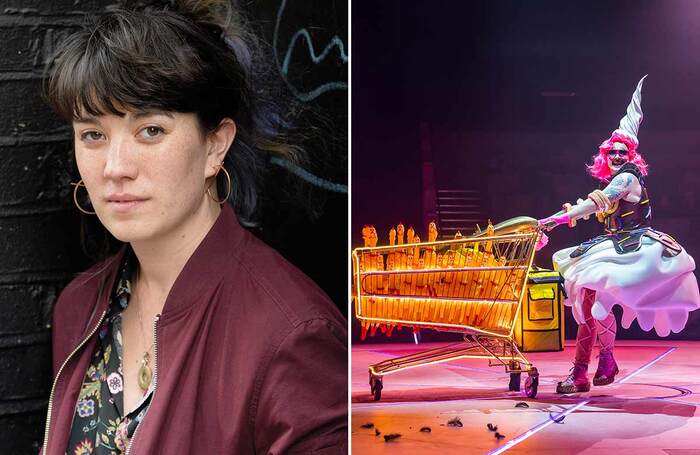
Jude Christian
The writer, director and dramaturg has written and directed pantomimes at the Lyric Hammersmith, the National Theatre and, this year, Rapunzel for Liverpool Everyman
I find panto a really satisfying and joyful thing to do – partly because I quite often make incredibly miserable work for the rest of the year! And on a technical level, and a dramaturgical level, it’s such an amazing workout for theatremakers. It’s a really incredible training ground, and a craft all of its own.
I remember saying to [former Lyric artistic director] Sean Holmes: “I love making theatre that is quite weird and rule-breaking, with its own sense of humour, that isn’t very naturalistic or well behaved – but I also really love big-scale stuff, trying to appeal to mass audiences, musicals…” And he was like: ‘That’s why I’m putting you on panto: it’s the Venn diagram of those things.’ And he was right!
‘Panto is also an intensely political form, because you’re defining what a feel-good story is’
Dick Whittington, which I co-wrote with Cariad Lloyd, was at the National Theatre during Covid lockdowns [and streamed for free online]. It was a really lovely gesture from the National about how important panto is for the whole country, but there was a moment after the first preview when Rufus Norris was like: “Who knew you could just stop the show and essentially play Hungry Hungry Hippos?” And we were like – “Well, we knew, because it’s just what you do in panto…”
In theatre, people expect stylistic continuity – making the plot incredibly clear, being serious about the form – but as soon as you start making panto, people are like: “Sorry, could you constantly break the fourth wall and have a chat with the audience?” It’s a really lovely place to hang out.
It’s also an intensely political form, because you’re defining what a feel-good story is. At the Lyric, we had a very prominent lesbian love story, and we had complicated conversations about putting that front and centre in a way that felt completely normal, completely natural: an inescapably joyful thing for all of the audience.
You really have to care about the traditions of a particular venue and the audience it has built up over the years. Working at the Everyman, I’m learning from the building – what are the things that have happened for the past 20 years that the audience expects? And what are the things that, as a venue, you want to evolve?
People think panto is quite easy – until they start doing it. And panto previews are hardcore; you’re changing and rewriting it so much. You learn absolutely tonnes about what does and doesn’t work. Often, audiences are one step ahead of you – they shout out the punchline and you’re like: “Right, well we can cut the rest of that scene.”
Rapunzel is at Liverpool Everyman until January 18
Continues...
Alan McHugh
Having written pantomimes for 30 years, McHugh is this year also taking on directing and acting duties – as the dame – in Jack and the Beanstalk at His Majesty’s Theatre in Aberdeen
Way back in 1993, I was playing the dame at the Adam Smith Theatre in Kirkcaldy. It was an off-the-shelf English panto that had been sent up to us and there were no local references. I spoke to the producers and director and said: “Listen, can I rewrite my stuff to make it work for me?” The next year they asked me back and said: “Would you mind just writing it all…” A few years later, other panto producers asked if I could write theirs as well – it basically fell my way.
For [commercial pantomime producer] Crossroads, I’m writing 17 pantomimes this year: that’s good – that’s manageable. The hardest year was before lockdown – I did 32 and it was just horrible. The way to do it is just to deal with one at a time; two or three at a time is a total mindfuck, it really is.
I’ll be honest, there’s no glamour in sitting at a laptop for 14 hours a day, and that’s what it is sometimes. But every script I write I try to make it the best one I possibly can. I still enjoy it. You could easily churn out the same thing – but I know I have a responsibility. Panto is often the first time we get kids to theatre. And we can get them for life as theatregoers – or we can lose them.
‘The pantos I write for Glasgow and Edinburgh are similar in humour and working-class-ness to ones I write for Manchester and Liverpool. But the further south you go… they’re a bit tamer!’
Come January or February, I sit down with Crossroads and they say: “These are the ones we want you to write.” You couldn’t do them all from scratch; I’m not saying it’s a cut-and-paste job, at all, however they’ll say: “Nottingham – we want that based on the Peter Pan that was in Bradford last year, but you’re getting this set, and you’ve got this name…”
A lot of it is based around the names. Say if it’s Craig Revel Horwood – you know it’s going to be a dance-led show. If it’s Pete Firman, a comedy magician, you know it’s going to be a comedy magician-led show. Some people bring a lot to the table, but some don’t have an act, so it’s up to me to write a whole script of comedy or themed stuff.
Every venue is different. The pantos I write for Glasgow, Edinburgh and Aberdeen are similar in humour and working-class-ness to ones I write for Manchester and Liverpool and Newcastle. But the further south you go… Wimbledon, Richmond, they’re a bit tamer!
I don’t like smut. There’s a difference between vulgarity and smut – vulgarity is stuff that kids can laugh at, but smut is stuff that parents will be embarrassed by. I personally don’t think that there’s a place for that in panto.
Panto has got bluer over the years. I think we’re better than that – but once my script goes out to the comics, the dames, they can put their own stuff in. I’ve seen reviews that say: “Written by Alan McHugh, there’s a lot of filth in it.” No no no, I didn’t write that, it was clean when I sent that out! You don’t get that with Pinter or Shakespeare…
Jack and the Beanstalk is at His Majesty’s Theatre from November 30-January 5
Paul Hendy
The veteran panto penman has more than 20 years of experience creating scripts for his production company Evolution, which stages shows across the UK
This is my 40th year in pantomime. I did my first when I was 18 and I performed every year for 25 years. I’ve also been writing them for about 20 years.
I think they’ve changed a lot actually, especially in the past 15 years. When Ian McKellen first did Widow Twankey and Stephen Fry wrote a pantomime, I think there was a change in attitudes. It didn’t become cool – I don’t think panto will ever be cool, as such – but we used to ring up agents and they’d say: ‘Oh so-and-so doesn’t do panto.’ Whereas I haven’t heard that in years. It’s not considered naff anymore.
And the quality has definitely changed. When I look back, I was in some low-end pantos… whereas now, people like us and Crossroads, we invest a lot more. Pantos are like big West End shows in their production values: they’re huge, spectacular shows. And the scripts have got better.
‘Panto has got to be familiar, but it’s also got to be original. It’s got to be like your comfy old slippers, but also a new pair of slippers’
Post-Covid lockdowns, I think people really appreciate pantomime and its place in British culture. It’s the lifeblood of theatre. In Canterbury, we sell 50,000 tickets by March, before we announce the cast or anything! It’s got a special place in people’s hearts.
I still love the writing process: thinking, is this going to make people laugh? There’s nothing better than going to opening night and seeing a thousand people laughing at something I sat and thought of.
It’s a strange thing – panto has got to be familiar, but it’s got to be original. It’s got to be like your comfortable old slippers, but it’s also got to be a new pair of slippers. We have the same dames who are in it each year in our venues, and I think that’s vital. They’re not TV stars, but they are stars to the people in Sheffield or Northampton.
People want to laugh – we’re living in very difficult times, and more than anything they want to come and laugh. The topical jokes are very last-minute and they might be added in during the rehearsal period; if something major happens, I might phone the directors or dames and say: “This might be good.”
I do still enjoy watching them – I see 20 pantomimes a year. We only really have Christmas Day off, and on Christmas Eve, doing the tree, I’ll say: “Oh I think there’s a late matinee at Theatre Royal Margate…” and my wife Emily will go: “No!”
I wrote a play called The Last Laugh – about Tommy Cooper, Eric Morecambe and Bob Monkhouse – and it’s going to the West End next year. So exciting. I’ve been writing a lot of these panto scripts knowing I’ve got a play going to the West End – it would be very easy to go: “Oh, panto…” But actually, it’s so much part of me, I can’t imagine stopping.
Evolution Pantomimes are in theatres across the country; The Last Laugh is at the Noël Coward Theatre, London, from February 25-March 22, then touring until August 23
Vikki Stone
Writer, actor, musician and comedian Stone has starred in and written pantomimes – including Sleeping Beauty at the New Wolsey Theatre in Ipswich this year
I did two years playing a male baddie at the Lyric Hammersmith and then they offered me the chance to write. At that particular venue, you have a go for a few years, and then they refresh the writers, which I think is really good. The norm is that someone, usually a white male, has had their seat for 25 years… genuinely, you have to wait for someone to retire or die to get a stab at writing pantomime. That’s mainly because lots of venues have a fear of change. They think: “Oh, if we upset the apple cart, it will somehow spoil the ecosystem,” and the ecosystem of panto is often what keeps an entire venue afloat.
But I am really interested in anyone writing for the first time – new voices, new writing, new venues. At the Pantomime Awards, there was an innovation award that went to Theatre Chipping Norton: they had set their panto last year in Latin America with a nearly-all Latinx cast. In Chipping Norton! That’s really brave, and really cool. I want to see people stepping outside the box like that.
There are pockets of change, and not just in the subsidised sector. There’s a commercial company that did a Jack and the Beanstalk with a same-sex storyline – to have that in a big celebrity-driven commercial pantomime is great. But I also think there’s lots of pushback – lots of: “You won’t see any of that woke stuff here.”
Fundamentally, if you put something good in front of audiences, they actually won’t notice that it’s inclusive. Audiences don’t really care, as long as it’s funny – and that’s what producers forget. There’s a dragon in my panto with they/them pronouns. It’s not a big deal, it’s just a nice piece of inclusive language that I don’t think is going to get anyone’s back up. Because also… it’s a dragon!
‘Pantomime sits in a Venn diagram of stand-up and theatre. The jokes have to feel connected to the story’
Lots of commercial companies put all their costumes into stores, and they come out [year after year]. It does mean that there’s still loads of cultural appropriation in costumes and sets that are not being redesigned. Hopefully the industry is changing, but I think lots of companies out there need to really look at their stock.
My theory is that panto sits in a Venn diagram of stand-up and theatre. I write a lot of “ad lib as necessary” into scripts, because I want to make sure that people have freedom. But I will also put an example – jokes do have to feel connected to the story.
The main lesson that stand-up taught me was about economy of text. When I was starting out 10 years ago, audiences just didn’t want to see women. You could feel it when you stood on stage as a headliner. And so you had to make sure that your language and your text were so well crafted that they had no room for error. So I’m always seeking to cut things down in panto: getting it down to the absolute bare bones and then pumping it full of more jokes.
There are panto awards, but I feel there should be a category in the Oliviers in recognition of the amount panto does for the arts in this country. If you took it away, so many local venues just wouldn’t exist. I know it sounds trite to say “awards wouldn’t help”, but I think they would.
There’s also no Writers’ Guild rates for panto. It’s the Wild West. People just make it up. It’s the biggest-selling thing – why isn’t the union unionising what we should be paid to write it?
Somebody once came up to me at a season launch, where I was writing the panto, and said: “Oh well, maybe one day they’ll let you have a proper show.” This is a proper show – it’ll be the biggest-selling show of the year!
Sleeping Beauty is at New Wolsey Theatre, Ipswich, from November 22-January 18
Long Reads
Recommended for you
Opinion
Most Read
Across The Stage this weekYour subscription helps ensure our journalism can continue
Invest in The Stage today with a subscription starting at just £7.99
